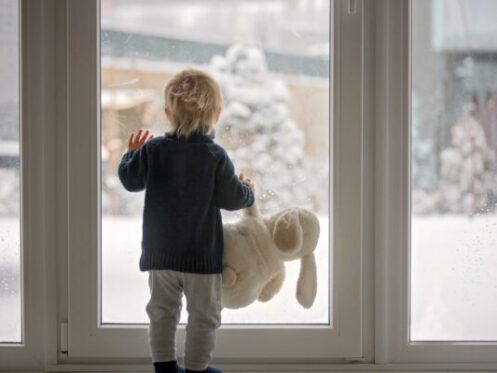Updated August 2023
The quality of the air in your home can play a role in how healthy you are. If high concentrations of pollutants and allergens are present in the indoor atmosphere, respiratory illness becomes increasingly likely. While your home’s indoor air quality can be poor in any season, air quality tends to worsen during the cold winter months. There are, however, steps you can take to improve the air quality in your home.
What Is Air Pollution?
Air pollution occurs when there are harmful substances in the atmosphere. It’s possible for these substances to come from industrial or natural sources. If you live in a larger city, pollution might come from cars, trucks, buses, and other vehicles. The pollutants that are most commonly found in the air include:
- Carbon monoxide
- Particulate matter
- Sulfur dioxide
- Nitrogen dioxide
- Lead
Why Is Air Pollution Worse During the Winter Season?
Seasonal habits and conditions determine how much pollution gets into your indoor air. Consider the following factors.
Cold Air Traps Pollution
While warm air rises, cold air sinks. Temperatures typically decrease as you get further away from the ground, which means that the air around the surface will be lifted up and away. Air that starts out near the surface usually consists of higher pollutant concentrations.
However, the situation changes during the winter and can lead to thermal inversions. Since sunlight is weaker, air around the earth’s surface can be colder than the air above it, which means that the air will remain near the surface and can get into your home.
Dry Air Holds Pollution
Winter air usually lacks moisture and humidity. A cold air molecule will naturally contain lower amounts of moisture than a warm molecule. While rain is able to wash away some of the standard pollutants that get into the air, the atmosphere being dry means that contaminant levels will increase.
Common Winter Habits and Activities Increase Pollution
The things you do during the winter season can contribute to increasing levels of pollution in your home. A homeowner is more likely to use a wood-burning stove or fireplace when the temperature drops, which can substantially increase the amount of particulate matter in the air.
You’ll probably also open windows less frequently when it’s cold outside and you’re trying to keep the warm air in. If you don’t keep your home well ventilated, pollution levels can become more concentrated. Outdoor air pollution increases at this time of the year because of fossil fuel combustion, which is more common when the cold weather sets in.
Air Pollution Differs by Region
Even though air pollution is considerably worse during the winter, there are a few exceptions to the rule. Some areas in the U.S. don’t have dry winters. In areas that experience a rainy season in these months, the air can be cleared of pollution.
Climate change has also altered how seasons occur in different parts of the country. Some cities and states obtain more rainfall during the winter than ever before. However, it’s likely that you’ll encounter more air pollution in your home when the weather is colder. Look out for signs of asthma, heart disease, and other health conditions. The particulate matter that can build up in your indoor air is the main cause of such illnesses.
How to Avoid Bad Air Quality During the Winter
There are several methods that can be used to reduce indoor air pollution in your home. If you use wood as a primary source of heat, avoid starting a fire to keep air contaminant levels low. Indoor air quality may be improved by opening your windows on occasion and keeping your home properly ventilated.
Of course, beyond all this, an air filtration system can be used to improve your home’s air quality. The ones available to you include whole-home air purifiers, dehumidifiers, humidifiers, and UV lamps.
At My Guy Heating and Air, LLC, we can test your air quality to identify the concentration of pollutants and provide you with solutions that will make your air cleaner. If you’d like to improve your indoor air quality, we can install any type of filtration system for you. Our team also provides Mead, CO homeowners with comprehensive cooling and heating offerings that include maintenance, repair, and installation services. Contact us today to discover how we can improve your home’s indoor air quality!




